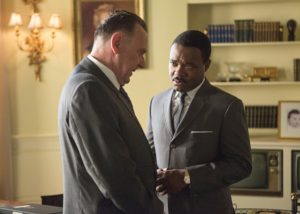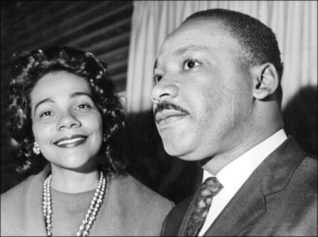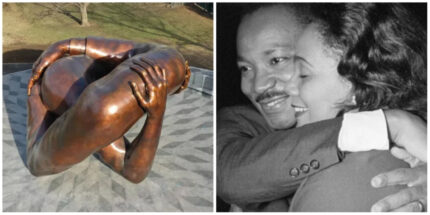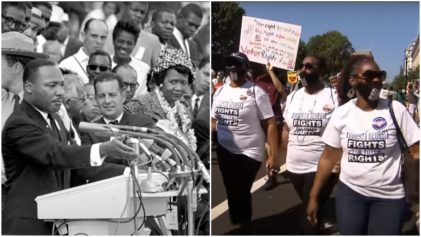Selma director Ava DuVernay probably won’t receive the apologies she so rightfully deserves after audio recordings of former President Lyndon B. Johnson’s conversations about Selma and Martin Luther King Jr. were featured in a short documentary. Critics of the film and LBJ supporters bashed DuVernay’s portrayal of the president, but the recordings suggest that Johnson was indeed a man in power who was making a political move to defend his presidency rather than taking a moral stance in favor of the Black community.
It is an opportune time to tackle the issue, as luminaries, activists and excited history buffs gather in Selma this weekend to commemorate the 50th anniversary of the landmark events that took place there.
Even before DuVernay ever come onboard the project about the iconic march through Selma, confusion always seemed to swirl around Johnson’s role in the Civil Rights Movement.
Was he a courageous man who wanted to take a stance in favor of equality and justice for the Black community or was he simply a man with the worst job in the country who was trying to make sure the success of his presidency wasn’t obliterated by the demonstrations of an oppressed community?
Historians have come out to argue both sides, but based on Johnson’s own conversations, the latter may be the most accurate answer.
In a short documentary by Scott Calonico, the president’s conversations with allies, advisers and other political staff suggested that he was no fan of the massive marches that were taking place in the South.
“They’re going to have another march tomorrow, and, as we see it, it’s going to go from bad to worse and we don’t know what program [George Wallace] has to eliminate it,” Johnson said during a phone call with Buford Ellington, the director of the Office of Emergency Planning and former governor of Tennessee.
In another conversation, the president reveals what were likely his true intentions behind helping to pass the Voting Rights Act.
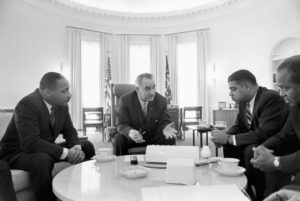
It has to do with eliminating a disturbance.
“Well, we got to do what’s right, and I guess the right thing is to keep down the disturbance at almost any cost,” he said.
The president also revealed that he wasn’t very fond of Martin Luther King Jr. and he disapproved of his overall leadership in the South.
“I would take a much tougher line than we’re going to with him,” he said during a phone call with Bill Moyers, the special assistant to the president, in reference to King. “I really think we ought to be firm on him myself. I just think it’s outrageous what’s on TV. I’ve been watching it here and it looks like that man is in charge of the country and taking it over. I just don’t think we can afford to have that kind of character running and I’d remind him what he had said and take a very firm line with him.”
It’s a reminder that the political war against racism and discrimination is a separate battle from the social push to change people’s attitudes toward the Black community.
While the president may have been publicly speaking out against the officers who attacked the protesters, this was more of a political play than it was a firm stance for what was morally correct.
This does not by any means take away from the progress that was made with the passing of the Voting Rights Act, but it does serve as a reminder that even political steps toward progress need to be put in perspective—especially when the people in power still haven’t managed to find a genuine sense of respect for the Black community.
